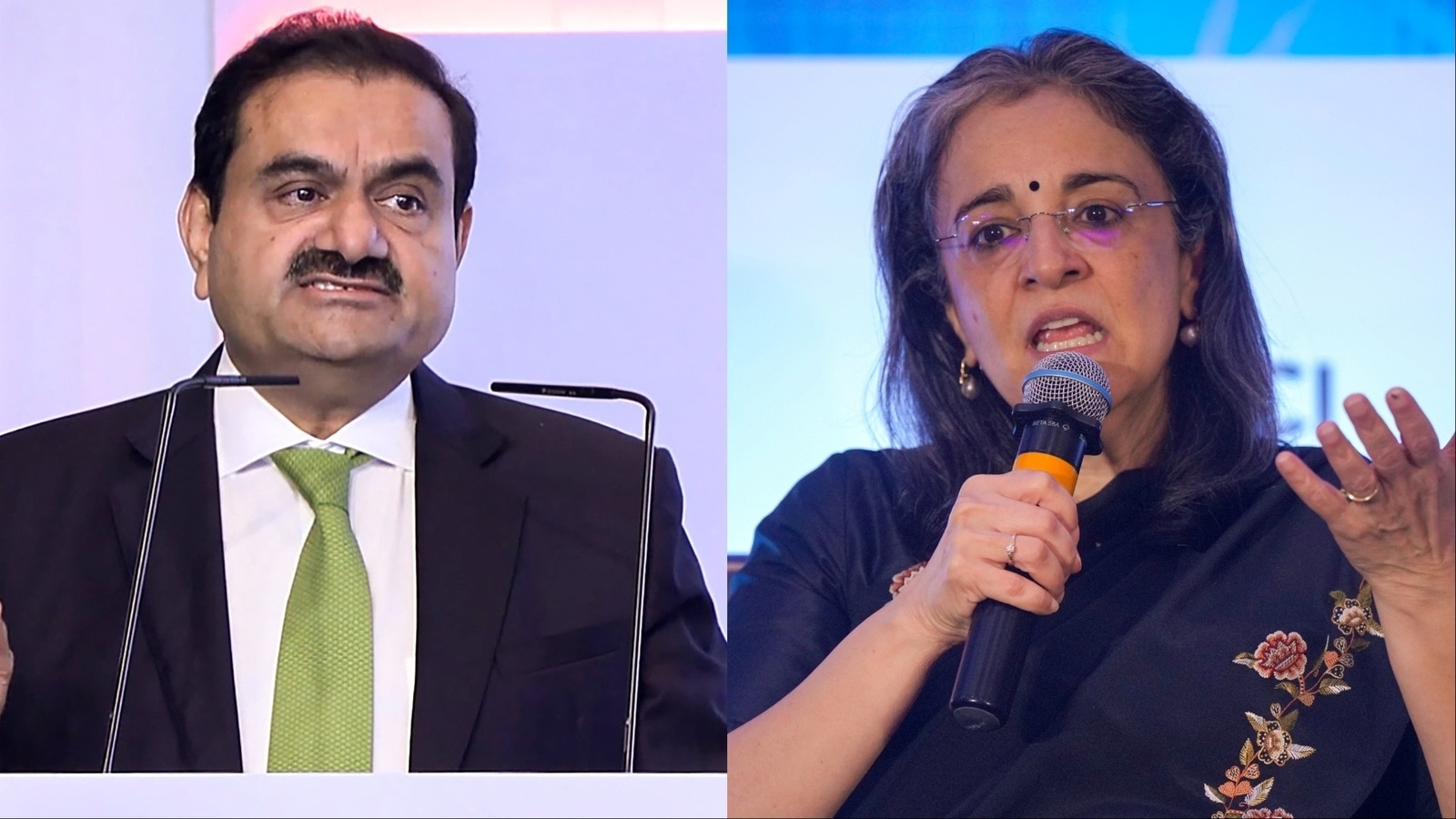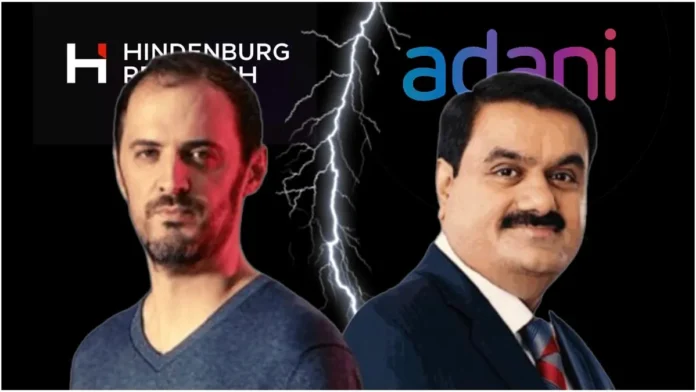In a massive blow to investor confidence, the Adani Group has seen a staggering ₹7 lakh crore ($82.91 billion) wiped off its market capitalisation since January 2023, following damning allegations from US-based short-seller Hindenburg Research. The group’s financial troubles deepened recently with fresh bribery charges surfacing in a US court, exacerbating the decline in its stock values.
From ₹19.24 Lakh Crore to ₹12.24 Lakh Crore: The Downward Spiral
The market capitalization of the ten listed Adani companies plunged from ₹19.24 lakh crore ($227.78 billion) on January 23, 2023 — the day before the Hindenburg report’s release — to ₹12.24 lakh crore ($144.87 billion) by November 21, 2024. This sharp decline represents a loss of ₹7 lakh crore in investor wealth over nearly two years.
The latest wave of losses came on November 21, 2024, after US court filings revealed a ₹2,000 crore bribery charge against the group to secure energy contracts. Adani stocks nosedived by up to 23% in a single day, erasing ₹2.22 lakh crore in market value.

Hindenburg Allegations and Initial Fallout
The January 2023 Hindenburg report accused the Adani Group of a “brazen stock manipulation and accounting fraud scheme” spanning decades. The fallout was immediate, triggering a month-long market rout that reduced the group’s combined market value from $140.1 billion to $80.67 billion by February 27, 2023.
However, a subsequent ₹15,000 crore investment from GQG Partners in mid-2023 sparked a partial recovery. By June 3, 2024, the group’s valuation peaked at $229.87 billion (₹19.42 lakh crore). Despite this rebound, controversies continued to weigh heavily on the group, culminating in the latest bribery allegations.
Whistleblower Allegations Against SEBI Chairperson
Fresh allegations in late 2024 further eroded investor confidence. Hindenburg Research, citing whistleblower documents, accused SEBI Chairperson Madhabi Puri Buch and her husband, Dhaval Buch, of holding stakes in offshore funds linked to the Adani Group’s alleged money-siphoning operations.
Both Buchs denied the allegations, with SEBI emphasizing its robust internal mechanisms for addressing conflicts of interest. These mechanisms include stringent disclosure frameworks and recusal provisions. Nonetheless, the controversy added fuel to the fire, contributing to the continued decline in Adani stocks.

Institutional Investors and Market Weakness
The broader market weakness also impacted the Adani Group’s valuation, with the Sensex falling 8,800 points since September 27, 2024. As of November 19, 2024, the group’s combined market capitalization stood at ₹14.49 lakh crore, marking a continued decline from its June peak.
Institutional investors such as LIC, mutual funds, and insurance firms remain heavily invested in several Adani Group companies. However, retail investors hold less than 10% in most Adani firms, with the exception of Adani Wilmar. Notable institutional stakes include:
- Adani Enterprises: 2.78%
- ACC: 9.2%
- Adani Total Gas: 5.46%
- Adani Power: 4.8%
- Ambuja Cement: 4.6%
This limited retail participation has somewhat insulated smaller investors from the steep losses.
What Lies Ahead for the Adani Group?
The Adani Group’s financial troubles underscore the fragility of investor confidence in the wake of regulatory and legal scrutiny. The group has faced challenges on multiple fronts, from the Hindenburg report’s accusations of fraud to recent bribery charges. While significant investments like those from GQG Partners have provided temporary relief, the group’s stock values remain under pressure.
With its market capitalization now at ₹12.24 lakh crore, down from ₹19.24 lakh crore at the start of the crisis, the Adani Group faces a long road to rebuilding trust among investors. As regulatory investigations and market volatility persist, the group’s future depends on its ability to address governance concerns and stabilize its operations.
The latest developments serve as a stark reminder of the risks involved in concentrated holdings and the potential consequences of regulatory lapses, both for the Adani Group and the broader market.

